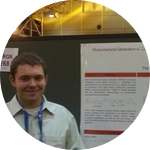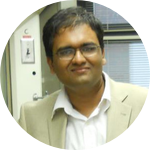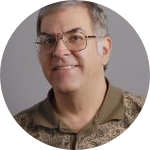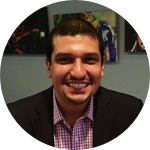About This Project
We are routinely exposed to substances with trace concentrations of harmful chemicals. These chemicals are often associated with cancer, lowered IQ, behavioral changes, particularly for young children. Overcoming challenges of testing affordability and accessibility is difficult. This experiment employs an easy-to-use test for water quality and allows citizen scientists to identify harmful chemicals and prevent crises like Flint, MI in 2014 and Cape Fear, NC in 2017.
Ask the Scientists
Join The DiscussionWhat is the context of this research?
The Environmental Protection Agency (EPA) estimates that nearly 63 million U.S. residents are exposed to elevated levels of chemical pollutants by drinking contaminated water (Source: USA Today). Over 900 pollutants are consistently found in waterbodies across the country (More Info). EPA regulations mandate testing of public drinking water and test for approximately 120 chemicals. The list, however, excludes many harmful substances like Perfluoroalkyl Substances (PFAS). PFAS can be found in drinking water of 16 million people in high concentrations (Source: PBS). Also, nearly 43 million residents rely on private wells for drinking water, which are often untested by state or federal agencies.
What is the significance of this project?
Water quality testing can be expensive and cumbersome. Identifying chemical pollutants in one's drinking water or private well often requires one to manually collect and send water samples for lab testing. These tests can cost over $200/sample. PFAS, a key water pollutant, require additional, more expensive tests. Current home water test kits are now available at approximately $20, but these test kits only test for two pesticides and often leave out many key harmful substances. Our aim is to provide an easy-to-use test that covers all major pollutants, including PFAS. Our do-it-yourself test kit costs $20/sample while testing requiring lab work at the University of Georgia will cost $50/sample.
What are the goals of the project?
Our primary goal is simplify the ChemPrint test using citizen scientists. We hope that with some training and an instruction manual, members of the general public can perform ChemPrint tests precisely and accurately. In 2017, we hosted our first workshop with high school students at labs at the University of Georgia and attained interesting results. If funded, this initiative will help us host more workshops with stakeholders who can then use ChemPrint to test water at home. At the same time, we will test all water samples using state-of-the-art laboratory instrumental analysis methods. This testing will allow us to benchmark the ChemPrint test, generate data, and ultimately share our experience via publications on how to improve the ChemPrint test and optimize its use.
Budget
Donated funds will be used to buy materials/consumables necessary for training workshops. These materials include HPLC grade solvents, sampling bottles, solid phase extraction (SPE) disks/cartridges, thin layer chromatography plates, etc. We will test one additional water sample for every $50 donated over the project goal.
Click here to view a detailed spreadsheet.
Endorsed by
 Project Timeline
Project Timeline
This project will last approximately six months. During this period, all water samples will be collected, workshops conducted, and data analyzed.
Mar 08, 2018
Campaign launched
Mar 08, 2018
Project Launched
May 15, 2018
All workshops completed, final data analysis completed
Jun 01, 2018
Manuscript ready to be sent to the journal
Meet the Team
Affiliates
Jay Patel
Mr. Jay Patel completed his Masters in chemistry in 2013 from the University of Georgia and has worked on ACH ChemPrint in his personal capacity. He is also an ORISE fellow at National Exposure Research Laboratory of the U.S. Environmental Protection Agency (U.S. EPA). Google Scholar. jaypatel@uga.edu
Robert Phillips
Dr. Robert Phillips received his B.S. in 1974, and Ph. D. in Chemistry in 1979, from the Georgia Institute of Technology, working with Dr. Sheldon May. Dr. Phillips was then a postdoctoral fellow at the NIMH with Dr. Seymour Kaufman from 1981 to 1983 and at the NIADDK with Dr. Louis A. Cohen from 1983 to 1985. Dr. Phillips became Assistant Professor in the Departments of Chemistry and Biochemistry and Molecular Biology at the University of Georgia in 1985. He was subsequently promoted to Associate Professor in 1991 and Professor in 1996. His research interests are in structures and mechanisms of enzymes in amino acid metabolism, and stereochemistry of alcohol dehydrogenases. Dr. Phillips has taught courses in organic chemistry and medicinal chemistry at the undergraduate level, and physical organic chemistry, bioorganic chemistry, and organic spectroscopy at the graduate level. On his limited free time, Dr. Phillips enjoys fly fishing. Google Scholar.
Ray Serrano
Dr. Ray Serrano is originally from Idaho, but his educational journey has hit all corners of the U.S.--having completed his PhD in health services research at Emory (Atlanta, GA), Masters at Yale (New Haven, CT), and Bachelors at Stanford (Stanford, CA). His research is largely focused on health system decentralization in resource limited settings and in addressing policy-related determinants of health and healthcare utilization. This line of research can broadly be characterized as political epidemiology because it examines upstream polities/politics and their ties to downstream health. His work experience stems from coordinating/implementing UN initiatives targeting HIV and Tuberculosis in Southeast Asia (Thailand) and Southern Africa (Zambia). Through his domestic and international experience, Dr. Serrano has become adept at navigating complex bureaucracies and at translating health policies into practice.
Gerald F John
Dr. Gerald John completed his PhD in environmental engineering from Auburn University. He is currently employed as an air lab analytical chemist with Alpha Analytical.
Adna Muliawan
Mr. Adna Muliawan performed graduate-level research in organic chemistry at the University of Georgia, New York University-Abu Dhabi, and Hong Kong University. He is currently a physics instructor and oversees the science department at an elite private high school in Duluth, GA.
Additional Information
All supporters will be acknowledged on our webpage and on publicity materials. They will also receive exclusive updates and labnotes as the project unfolds.
We very much want our project to be in collaboration with members of the general public and thereby seek volunteer partners to contribute to the data analyses aspect of this project. If you are proficient with R/Java/python-based data analysis packages and would like to become an integral part of this project, please contact Mr. Jay Patel (jaypatel@uga.edu) or Dr. Robert Phillips (plp@uga.edu).
Also, please sign up here if you would like to participate in training workshops to be hosted at University of Georgia labs at Athens, GA between March and May 2018.
Project Backers
- 13Backers
- 25%Funded
- $564Total Donations
- $43.38Average Donation





